In South Africa, goat farming is a popular and profitable agricultural activity. For a good reason, goat farming is a popular form of agriculture in South Africa. Goats are versatile animals used for meat, milk, and fiber production. In addition, goats are easy to care for, making them a good option for small-scale farmers. If you’re thinking about starting a goat farm in South Africa, there are a few things you need to know. Today, goat farming is still an important part of the South African economy.
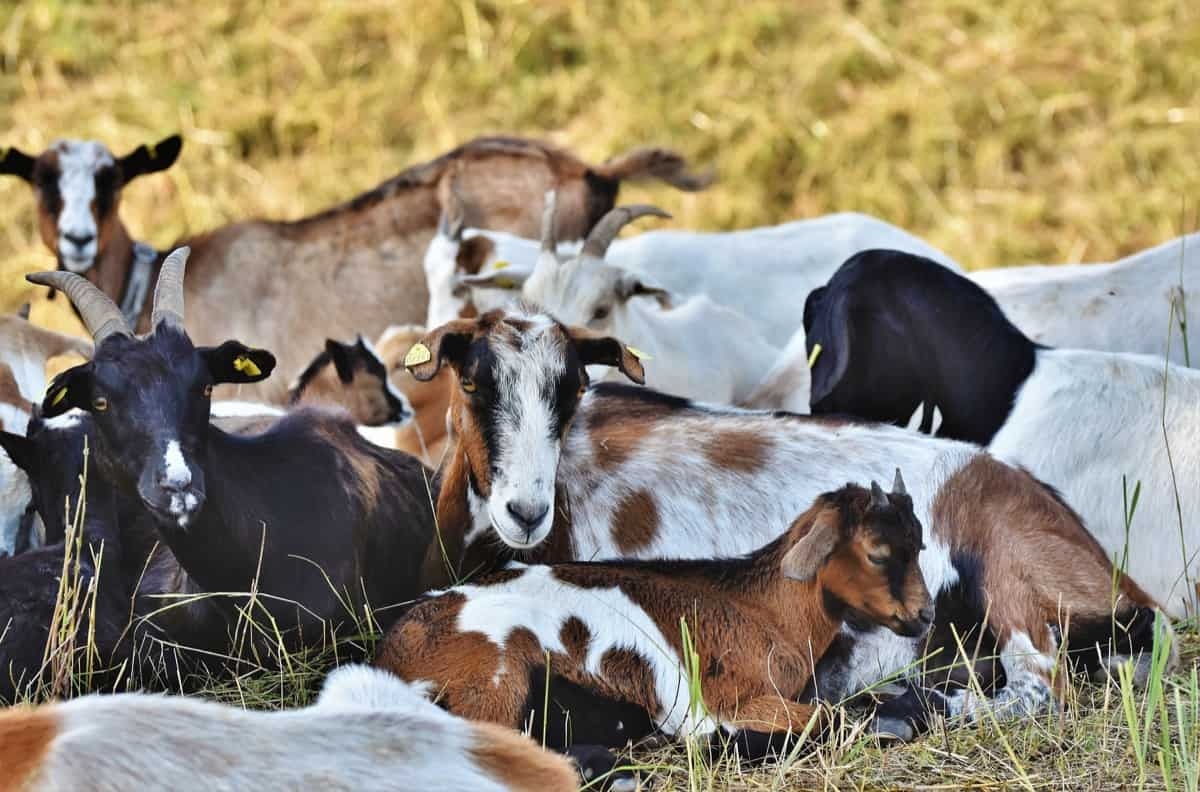
How to start Goat farming in South Africa
Is goat farming profitable in South Africa?
Goat farming can be a profitable enterprise in South Africa, provided that farmers can produce goats of good quality and with a high yield. Furthermore, there is a growing demand for goat meat in South Africa, as it is perceived to be healthier than other meats such as beef and pork. In addition, the cost of feed and husbandry for goats is relatively low, making goat farming a viable option for small-scale farmers.
To maximize profits, farmers should consider selling their goats directly to butcheries or restaurants, as this will fetch a higher price than selling to wholesalers. They should also pay attention to the health and welfare of their animals, as this will impact the quality of the meat. Finally, they should keep up to date with market trends to adjust their production accordingly.
Goat farming for beginners in South Africa
- Goat farming is a popular enterprise in South Africa, and many farmers are interested in starting a goat farm. Goat farming for beginners in South Africa can be a bit daunting, but with some basic information and guidance, it can be a rewarding experience.
- Firstly, choosing the right breed of goats for your farm is important. There are many different breeds of goats, each with its unique characteristics. Some of the most popular breeds of goats in South Africa include the Boer goat, Saanen goat, and Angora goat.
- Once you have selected the right breed of goats for your farm, you must purchase quality breeding stock. This can be done by local breeders or at livestock auctions. When purchasing breeding stock, it is important to choose healthy animals that are free from disease.
- After you have acquired some breeding stock, you will need to build appropriate housing for your goats. Goats need shelter from the elements and should have access to clean water and fresh hay. Housing can be anything from a simple shed to a more elaborate barn system.
- Once your housing is set up, you must provide adequate fencing for your goats. Goats are curious creatures and will explore any openings in fences. Therefore, it is important to have strong and secure fencing to prevent escapes and protect your goats from predators.
In case you missed it: How to Start Goat Farming in Netherlands: Breeds, Cost, Profit, Business Plan, and Management
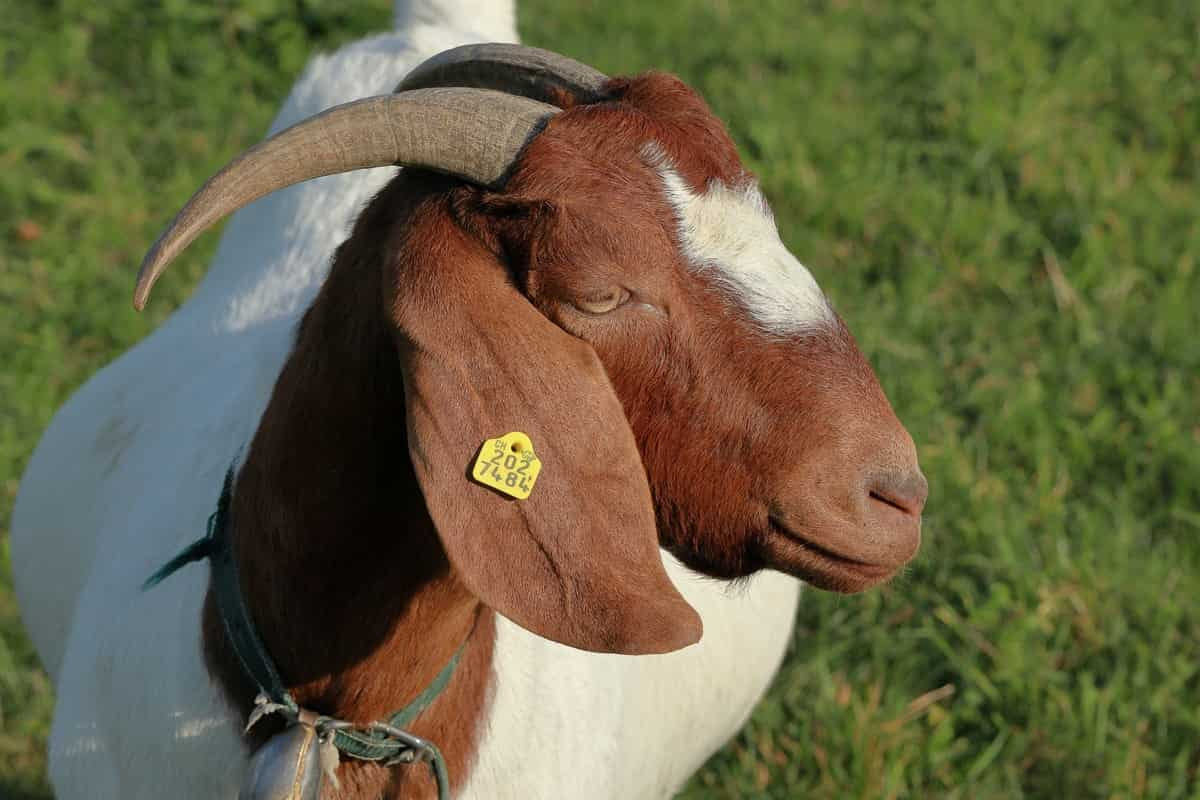
Benefits of goat farming in South Africa
There are many benefits to goat farming in South Africa. Goats are hardy animals that can thrive in many different climates and terrain. They are also easy to care for and require very little space. In addition, goats can be used for their milk, meat, and fiber, making them a versatile and valuable asset to any farm. Goats are well-known for their ability to produce high-quality milk.
Goat milk is richer in nutrients than cow’s milk and is easier to digest. It is also lower in cholesterol and fat. Goat cheese is a popular delicacy that is prized for its unique flavor. Goat meat is another valuable product of goat farming. Goat meat is leaner and healthier than beef or pork, making it a great choice for those looking for a nutritious option. Goat meat is also gaining popularity as a delicacy, with its rich flavor and tender texture.
Goat farming types in South Africa
There are several goat farming types in South Africa, including mixed, free-range, and intensive farming. Mixed farming is the most common type of goat farming in South Africa, where goats are raised on a mixed dairy and meat farm. Free-range goat farming allows goats to roam freely on a farm. Intensively farmed goat farms keep the goats close to the barn, providing them with more access to food and water but limiting their movement.
Tips to keep your goats healthy
- When it comes to keeping your goats healthy, there are a few things you need to keep in mind. One of the most important things is ensuring they have enough pasture. If their diet consists mostly of hay, they may not get the nutrients they need from their food. Secondly, make sure they have access to fresh water. Third, be sure to have a shelter for them, if possible, and give them access to some shade. Finally, always keep an eye on their weight and health; if something seems off, take them to see a vet as soon as possible!
- Goats are hardy animals that can handle a variety of climates and environments. They can thrive in hot and cold weather conditions, making them perfect for South Africa’s diverse climate.
- South Africa is home to a diverse population with different farming practices and goat husbandry requirements. Commercial goat farming in South Africa is predominantly done on large commercial farms that keep herds of goats for their milk, meat, fiber, and skin products.
In case you missed it: Goat Farming Loan in India: How to Get, Interest Rate, Documents for Banks, Mudra, and NABARD
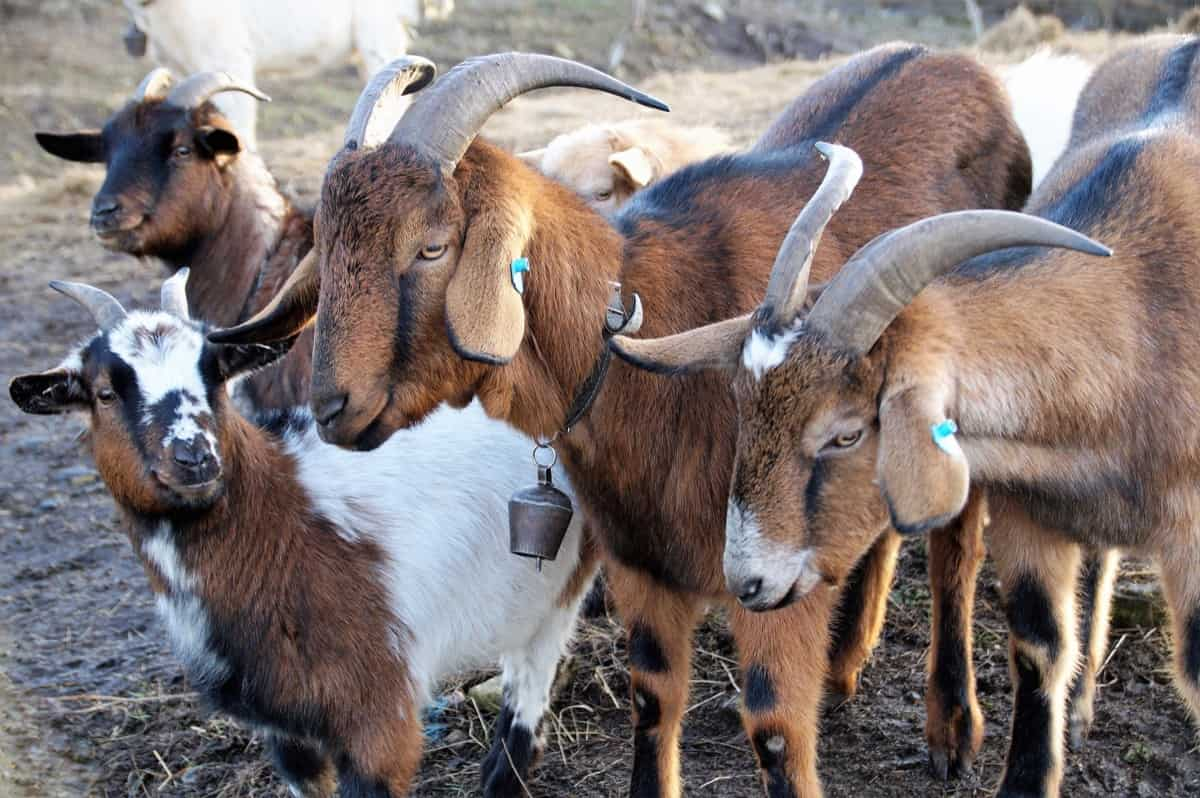
Goat farming areas in South Africa
In South Africa, there are many areas where goat farming is possible. This is because the climate and terrain in much of the country are well suited to goats, and many farmers have experience with raising these animals. The Eastern Cape is one area where goat farming is particularly successful. This region has a warm climate and plenty of pastureland for goats to graze on. In addition, several experienced goat farmers in the Eastern Cape can advise and assist new farmers.
Another area where goat farming is popular in Limpopo Province. This province has a more tropical climate than the Eastern Cape but still provides good conditions for raising goats. In addition, some experienced farmers in Limpopo can help new farmers get started with goat farming. Finally, the Western Cape is also a good place for goat farming. The climate here is cooler than in other parts of the country, but goats can still thrive if they have access to shelter and enough food and water.
In addition, several experienced farmers in the Western Cape can help new farmers get started with raising goats. Goat farming is an important part of the South African economy, and goats are farmed in many different parts of the country. The largest goat-producing provinces in South Africa are KwaZulu-Natal and the Eastern Cape, but goats are also farmed in the Western Cape, Limpopo, Mpumalanga, and the Northern Cape.
Goat breeds in South Africa
There are many different goat breeds in South Africa, each with unique characteristics. Some of the most popular breeds include the Boer goat, the Angora goat, and the Kiko goat.
- The Boer goat is a large breed known for its milk production. They are also one of the most popular meat goats in South Africa.
- The Angora goat is a smaller breed known for its soft, lustrous fiber. They are typically used for their wool but can also be used for milk or meat.
- The Kiko goat is a medium-sized breed known for its hardiness and ability to thrive in harsh environments. They are popular meat goats in many parts of Africa.
- Some other breeds are Kalahari Red, Saanen goat, Toggenburger, and Nigerian Dwarf goat.
How to start a goat farm in South Africa?
Starting a goat farm in South Africa is not as difficult as one might think. Many resources are available to those interested in starting a goat farm. The first step is contacting your province’s Department of Agriculture and Rural Development (DARD) to obtain a permit. Once you have obtained your permit, you will need to find a suitable location for your farm. Once you have found a location, you will need to purchase goats, build housing for them, and purchase feed and hay.
For starting a goat farm in South Africa, many resources are available to help you get started. The first step is obtaining a permit from your province’s Department of Agriculture and Rural Development (DARD). Once you have obtained your permit, you will need to find a suitable location for your farm. Once you have found a location, you will need to purchase goats, build housing for them, and purchase feed and hay. With some hard work, you can be on your way to becoming a successful goat farmer.
In case you missed it: How to Make Goat Manure Compost: A Step-by-Step Guide to Using in Your Garden/Farm
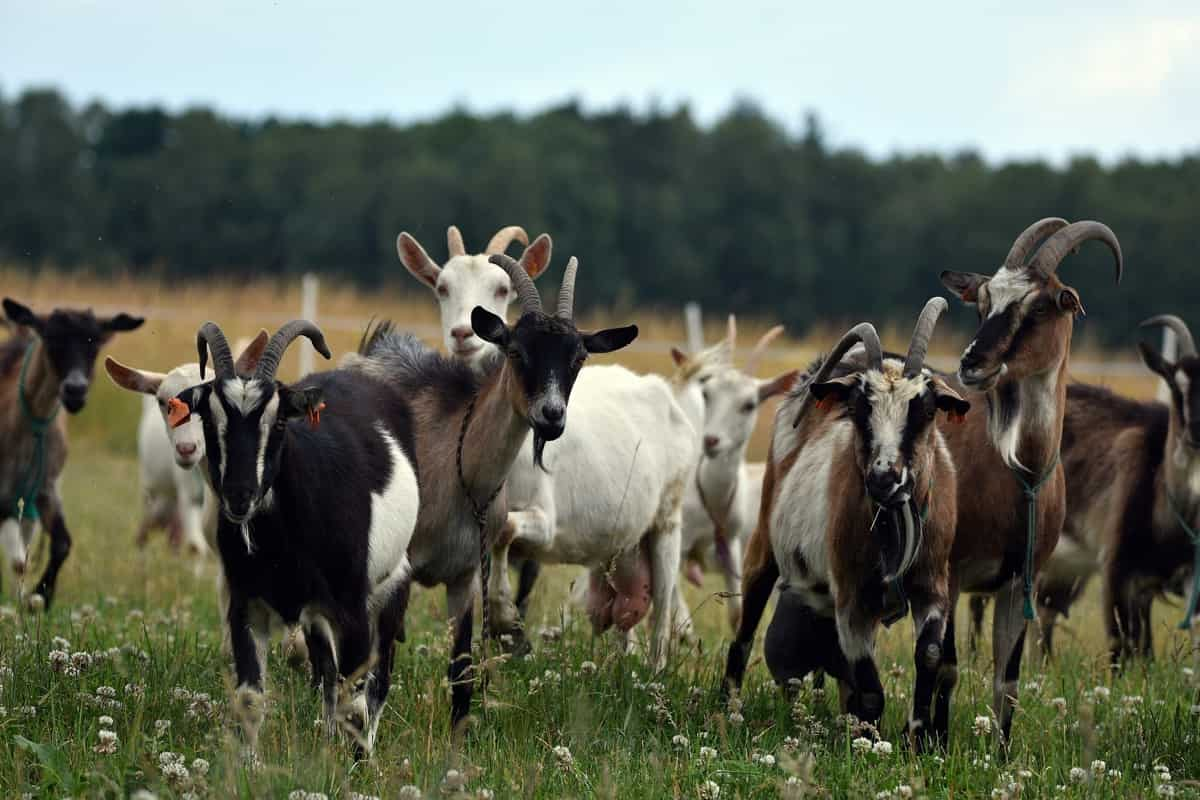
How does Goat farming works?
In South Africa, goat farming is a popular and profitable agricultural activity. There are many reasons for this. First of all, goats are hard animals that can withstand a lot of weather conditions. Secondly, they are efficient herbivores, and their milk provides high-quality dairy products. Finally, the country has a large population of people who are interested in consuming goat milk products.
Feeding management for goat farming
The type of feed you provide your goats will also depend on their age and stage of production. For example, growing kids will require a higher protein diet than adult goats that are maintenance fed. Similarly, pregnant and lactating will need a more nutrient-dense diet than does that is not producing milk. Good quality hay or grass hay is an important part of any goat’s diet and should always be available.
Supplemental feeds such as grains, pellets, or mixed rations can be offered to goats free-choice or fed in measured amounts based on the recommendations of a qualified animal nutritionist. There are a variety of feeds available for goats, and it’s important to select one that is appropriate for the climate and terrain where you live. For example, hay is a good feed for in-town goats but not suitable for out-of-town goats fed on pasture.
Things to consider when buying a goat
The first is the size of the herd you want. Goats are generally considered small livestock, and their grazing capacity will be limited if they are kept with larger animals like cows. However, a small herd of around 10 goats should be enough for most farmers. The second thing to think about is the temperament of the Goat.
Some goats are friendly and easy to get along with, while others can be more challenging. Make sure you have the space to accommodate a goat that may act out (goats love to chew on things), and also make sure you have enough feed and water for them. Lastly, consider your budget. Goats are not expensive to buy but require some care and attention to thrive.
Goat house design in South Africa
Regarding goat house design in South Africa, two main structures are commonly used: free-standing houses and pens. Free-standing houses are typically made of wood or metal and have a sloped roof to help keep the inside dry. Pens, on the other hand, are usually made out of wire mesh and can be either open-air or covered. The goat house size will depend on the number of goats you keep. A free-standing house 3m x 3m should be sufficient for a small operation.
However, if you plan on keeping more goats, then you will need a larger structure. It is also important to ensure that the goat house has enough ventilation to prevent heat and moisture build-up. Regarding bedding, straw is the most common choice as it is absorbent and easy to find. However, sawdust can also be used if the straw is not available. The bedding should be changed regularly to prevent the spread of disease.
In case you missed it: 19 Key Rules for Effective Goat Farm Management: From Planning to Reducing Production Cost
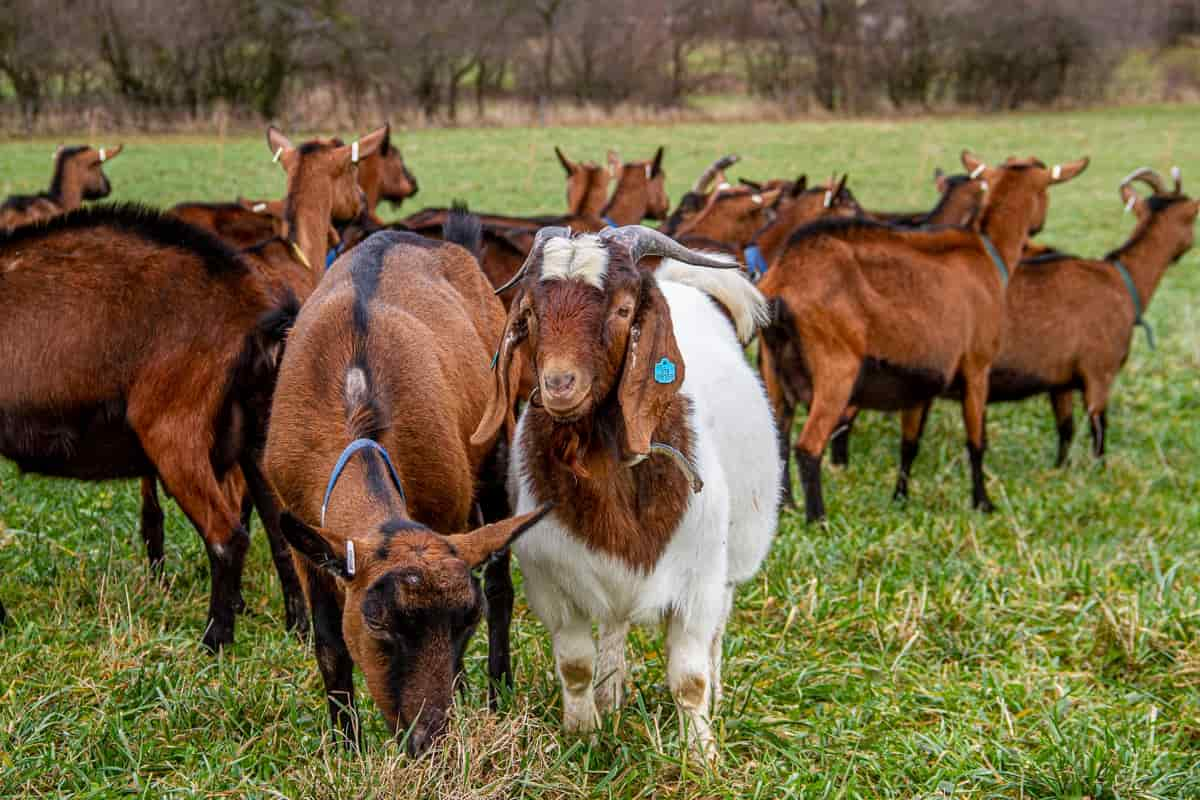
Steps to start a goat farming business in South Africa
If you’re considering starting a goat farming business in South Africa, there are a few things you need to know before you get started. For one, you’ll need to develop a detailed business plan. This plan should include your financial, target market, and production goals. Additionally, you’ll need to research the local market for goats in South Africa. This research will help you determine what type of goats are in demand and how much you can expect to sell them for. Once you have your business plan and market research, it’s time to start setting up your farm.
Firstly, you’ll need to purchase or lease land, build pens and shelters, and purchase goats. Be sure to purchase healthy goats from reputable breeders. Once your farm is set up and running, you’ll need to care for your goats daily. This includes feeding them, providing fresh water, and cleaning their pens. Goat farming can be a rewarding and profitable business venture. With proper planning and execution, your farm can be successful in South Africa’s thriving agricultural industry.
- Do your research – The first step is figuring out what you’re getting yourself into. There are many different types of goats available for purchase, so ensure you have a firm understanding of what each can and can’t do before making a purchase.
- Get a loan – Another important factor to consider when starting goat farming is financing your venture. A loan from a financial institution or bank can help you get started with the right resources and equipment and may even come with knowing that you’ve got backup if something goes wrong along the way.
- Get organized – Once you’ve gotten everything set up and begun producing milk, it’s important to be as organized as possible to keep your farm running smoothly. Having well-maintained fences, pens for your goats and proper feeding/watering schedules will ensure that your operation runs smoothly and keeps producing high-quality milk products for your customers.
Goat farming problems in South Africa
Goat farming is a popular agricultural activity in South Africa, with a production value of over R1 billion per year. However, some problems associated with goat farming need to be addressed. One of the main problems with goat farming is the high incidence of foot and mouth disease (FMD). This contagious viral disease kills goats quickly and has a significant economic impact on farmers.
In response to this problem, the government has implemented a wide range of measures to combat FMD, including compulsory vaccination programs for goats, restrictions on the movement of livestock, and increased research into new vaccines. Another major problem facing goat farmers is drought. Poor rainfall patterns can result in high levels of competition for water resources between pastoralists and farmers, leading to conflictual dealings over the access to water sources. This can have a serious impact on goat populations, as well as crop yields.
To address these problems, the government has developed several initiatives to improve goat farming productivity. These include support for inter-farming partnerships between small-scale dairy farmers and goat ranchers, training programs designed to help farmers learn more about efficient animal husbandry techniques, as well as the development of innovative marketing strategies that can promote Goat meat products in South Africa’s competitive food market.
In case you missed it: How to Start Goat Farming from Scratch: A Complete Guide for Beginners
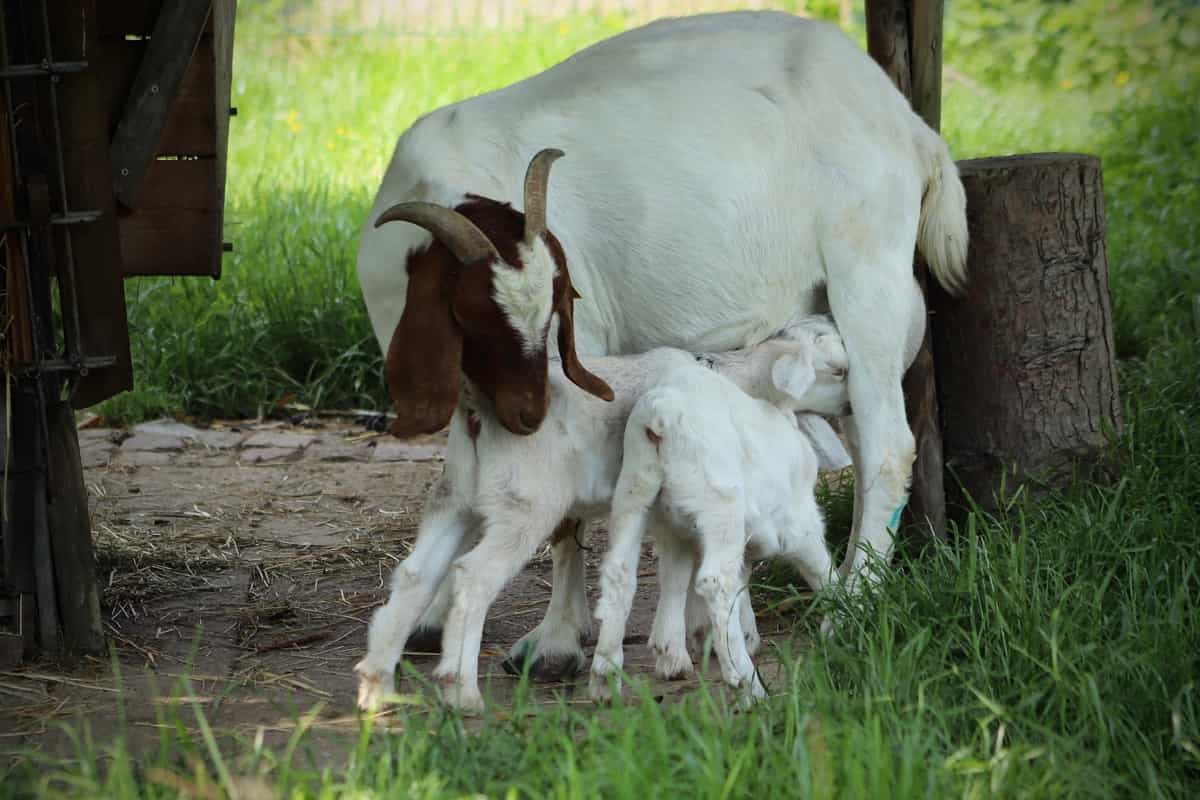
Conclusion
South Africa is one of the largest goat-producing countries in the world. The country has a wide variety of climate conditions, from subtropical highlands to arid areas, which makes it ideal for goat farming. Goat meat is widely consumed, and goats are also used for milk and cheese. In recent years, there has been a growing demand for organic and free-range goat products, which has led to a resurgence in small-scale goat farming operations.
- Types of Pesticides Used in Agriculture: A Beginner’s Guide
- Economical Aquaculture: A Guide to Low-Budget Fish Farming
- 15 Common Planting Errors That Can Doom Your Fruit Trees
- How to Make Houseplants Bushy: Effective Tips and Ideas
- Innovative Strategies for Boosting Coconut Pollination and Yield
- Pollination Strategies for Maximum Pumpkin Yield
- The Complete Guide to Chicken Fattening: Strategies for Maximum Growth
- Natural Solutions for Tulip Problems: 100% Effective Remedies for Leaf and Bulb-Related Issues
- Revolutionizing Citrus Preservation: Towards a Healthier, Greener Future
- Natural Solutions for Peony Leaf and Flower Problems: 100% Effective Remedies
- Maximizing Profits with Avocado Contract Farming in India: A Comprehensive Guide
- Natural Solutions for Hydrangea Problems: 100% Effective Remedies for Leaf and Flowers
- The Ultimate Guide to Choosing the Perfect Foliage Friend: Bringing Life Indoors
- From Sunlight to Sustainability: 15 Ways to Use Solar Technology in Agriculture
- The Ultimate Guide to Dong Tao Chicken: Exploring from History to Raising
- The Eco-Friendly Makeover: How to Convert Your Unused Swimming Pool into a Fish Pond
- Mastering the Art of Delaware Chicken Farming: Essentials for Healthy Backyard Flocks
- 20 Best Homemade Fertilizers for Money Plant: DIY Recipes and Application Methods
- How to Craft a Comprehensive Free-Range Chicken Farming Business Plan
- Brighten Your Flock: Raising Easter Egger Chickens for Beauty and Bounty
- How to Optimize Your Poultry Egg Farm Business Plan with These Strategies
- Subsidy for Spirulina Cultivation: How Indian Government Schemes Encouraging Spirulina Farmers
- Ultimate Guide to Raising Dominique Chickens: Breeding, Feeding, Egg-Production, and Care
- Mastering the Art of Raising Jersey Giant Chickens: Care, Feeding, and More
- Ultimate Guide to Raising Legbar Chickens: Breeding, Farming Practices, Diet, Egg-Production
- How to Raise Welsummer Chickens: A Comprehensive Guide for Beginners
- How to Protect Indoor Plants in Winter: A Comprehensive Guide
- Ultimate Guide to Grow Bag Gardening: Tips, Tricks, and Planting Ideas for Urban Gardeners
- Guide to Lotus Cultivation: How to Propagate, Plant, Grow, Care, Cost, and Profit
- Agriculture Drone Subsidy Scheme: Government Kisan Subsidy, License, and How to Apply Online
- Ultimate Guide to Raising Araucana Chickens: Breed Profile, Farming Economics, Diet, and Care
- Bringing Hydroponics to Classroom: Importance, Benefits of Learning for School Students
- Ultimate Guide to Raising Polish Chickens: Breed Profile, Farming Economics, Diet, and Care
- Ultimate Guide to Raising Australorp Chickens: Profile, Farming Economics, Egg Production, Diet, and Care
- Silkie Chicken Farming: Raising Practices, Varieties, Egg Production, Diet, and Care
- Sussex Chicken Farming: Raising Practices, Varieties, Egg Production, Diet and Care
The information provided is very much beneficial. I would like to start a goat farming. Im still raising funds for the project
I would like to start a goat business at Highveld Mpumalanga
Good day AgriFarming. Thank you so much for the information provided. I am from the Caribbean and I’m interested in purchasing goats from South Africa. Hence, I’m looking for contacts for reliable goat producers.
Thank you in advance for your assistance in this regard.
Edmond